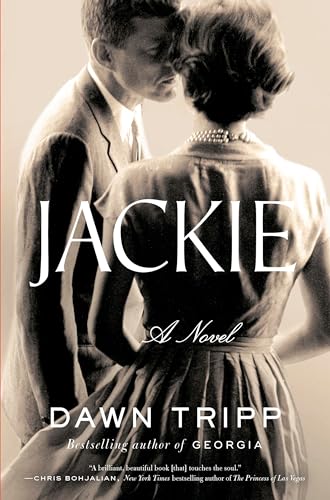Jackie
This powerful literary exploration of the life and loves of Jackie Kennedy Onassis starts her story with the event we all know about – the assassination of JFK. The reader is immediately and intimately brought into the trauma from Jackie’s point of view – in a fragmented stream of consciousness that reflects the horror of the moment but also hints of difficulties within the couple’s marriage. From there, Tripp steps back in time to spring 1951 and the beginning of that most famous relationship, as experienced by Jackie and very occasionally, by Jack Kennedy, adding another layer of interest and complexity to the novel. From the ´50s, Tripp follows Jackie right through to the ´90s when illness strikes. As someone who knew little about Jackie Kennedy beyond the headlines of her marriages and JFK’s assassination, this was a fascinating read.
Often biographical historical novels feature an historical afterword at the end of the book, but not this one. Given the subject at hand, Jackie wisely opens with a lengthy author’s note where Dawn Tripp outlines her research process and her ambitions for the book. She reveals her passionate attention to detail and argues that a fictional portrayal of this famous woman can offer something that nonfiction works about Jackie cannot. ‘Fiction,’ she writes, ‘when it hews to the historical record, can access a different level of truth, an experiential truth that allows us to enter the emotional heart of a story.’ In Jackie, she ‘wanted to explore the space between what took place and what she might have felt’. For me, she has achieved that and more. Jackie is a portrait of a person, but also of a time and a country. I couldn’t put it down.










